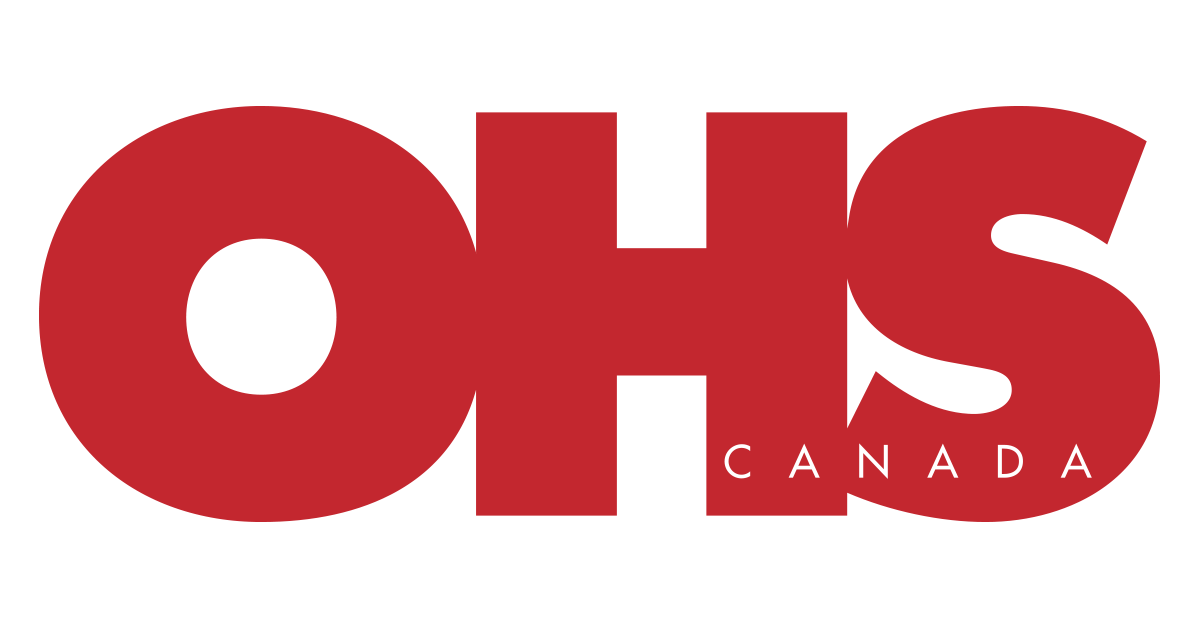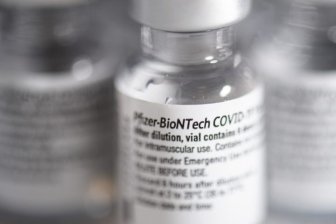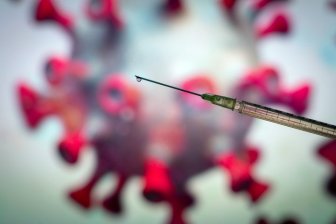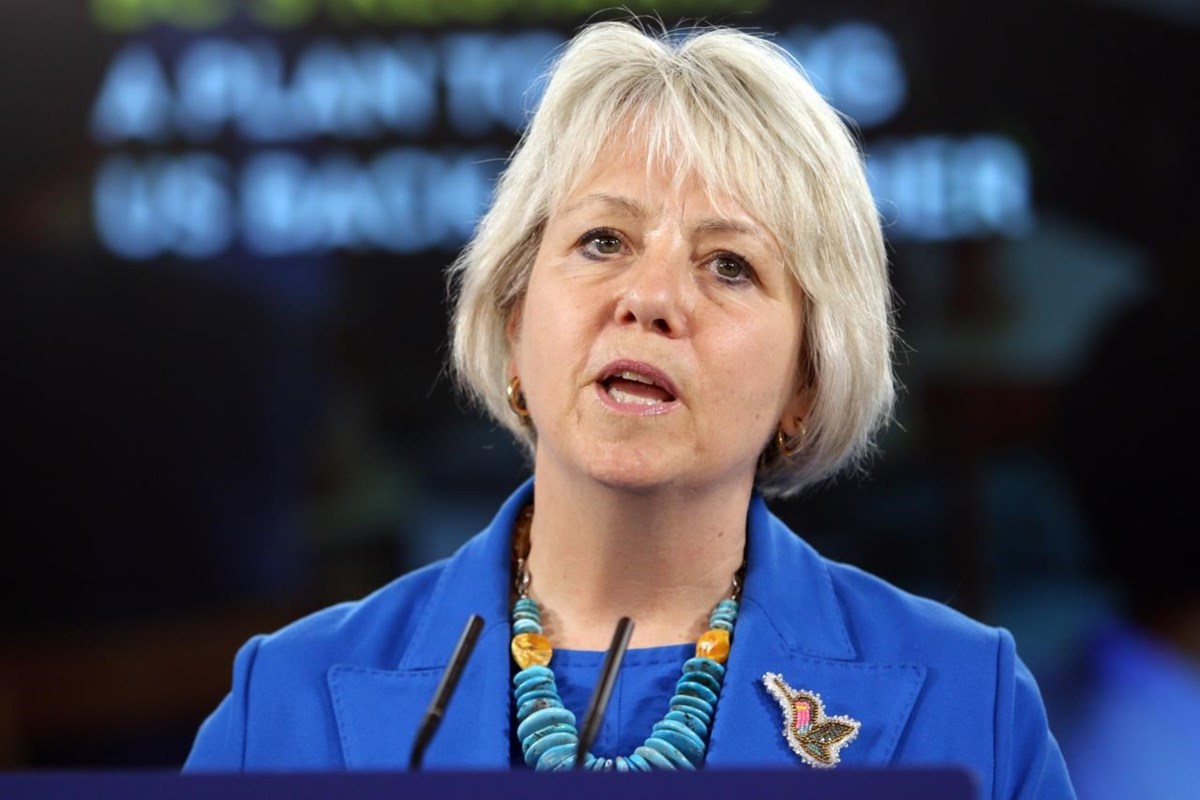OTTAWA -- Good morning. Here is the latest news on COVID-19 and its impact on Ottawa.
Fast Facts:
- More than 100,000 people in Ottawa booked earlier appointments for their second dose of a COVID-19 vaccine Monday morning.
- The number of known active COVID-19 cases in Ottawa is below 100 for the first time in almost a year.
- More than one million doses of COVID-19 vaccine have been administered in Ottawa.
COVID-19 by the numbers in Ottawa (Ottawa Public Health data):
- New COVID-19 cases: 11 new cases on Monday
- Total COVID-19 cases: 27,661
- COVID-19 cases per 100,000 (previous seven days): 7.3
- Positivity rate in Ottawa: 0.9 per cent (June 21-27)
- Reproduction Number: 0.85 (seven day average)
Testing:
Who should get a test?
Ottawa Public Health says you can get a COVID-19 test at an assessment centre, care clinic, or community testing site if any of the following apply to you:
- You are showing COVID-19 symptoms;
- You have been exposed to a confirmed case of the virus, as informed by Ottawa Public Health or exposure notification through the COVID Alert app;
- You are a resident or work in a setting that has a COVID-19 outbreak, as identified and informed by Ottawa Public Health;
- You are a resident, a worker or a visitor to long-term care, retirement homes, homeless shelters or other congregate settings (for example: group homes, community supported living, disability-specific communities or congregate settings, short-term rehab, hospices and other shelters);
- You are a person who identifies as First Nations, Inuit or Métis;
- You are a person travelling to work in a remote First Nations, Inuit or Métis community;
- You received a preliminary positive result through rapid testing;
- You require testing 72 hours before a scheduled (non-urgent or emergent) surgery (as recommended by your health care provider);
- You are a patient and/or their 1 accompanying escort travelling out of country for medical treatment;
- You are an international student that has passed their 14-day quarantine period;
- You are a farm worker;
- You are an educator who cannot access pharmacy-testing; or
- You are in a targeted testing group as outlined in guidance from the Chief Medical Officer of Health.
Where to get tested for COVID-19 in Ottawa:
There are several sites for COVID-19 testing in Ottawa. To book an appointment, visit https://www.ottawapublichealth.ca/en/shared-content/assessment-centres.aspx
- The Brewer Ottawa Hospital/CHEO Assessment Centre: Open Monday to Friday 10 a.m. to 5:30 p.m. Saturday and Sunday 8:30 a.m. to 3:30 p.m.
- COVID-19 Drive-Thru Assessment Centre at 300 Coventry Road: Open seven days a week from 10 a.m. to 2 p.m.
- The Moodie Care and Testing Centre: Open Monday to Friday from 8 a.m. to 3:30 p.m.
- The Heron Care and Testing Centre: Open Monday to Friday from 8 a.m. to 4 p.m.
- The Ray Friel Care and Testing Centre: Open Monday to Friday from 8 a.m. to 4 p.m.
- North Grenville COVID-19 Assessment Centre (Kemptville) – 15 Campus Drive: Open Monday to Friday 9 a.m. to 5 p.m. Sunday from 9 a.m. to 1 p.m.
- Centretown Community Health Centre: Open Monday, Tuesday, Wednesday, Friday from 9 a.m. to 4 p.m.
- Sandy Hill Community Health Centre: Open Monday to Friday from 9 a.m. to 3 pm.
- Somerset West Community Health Centre: Open from 9 a.m. to 4 p.m. Monday to Wednesday, 1 p.m. to 4 p.m. Thursday and 9 a.m. to 2:30 p.m. on Friday
COVID-19 screening tool:
The COVID-19 screening tool for summer camp children and staff. All campers and staff must complete the COVID-19 School and Childcare screening tool daily.
Symptoms:
Classic Symptoms: fever, new or worsening cough, shortness of breath
Other symptoms: sore throat, difficulty swallowing, new loss of taste or smell, nausea, vomiting, diarrhea, abdominal pain, pneumonia, new or unexplained runny nose or nasal congestion
Less common symptoms: unexplained fatigue, muscle aches, headache, delirium, chills, red/inflamed eyes, croup
The head of the City of Ottawa's COVID-19 vaccination task force says 100,000 appointments for earlier second doses were booked as of noon Monday.
As of 8 a.m. Monday, all adults 18 and older who received a first dose of Pfizer or Moderna became eligible to book an appointment to receive a second shot ahead of schedule.
Speaking on Newstalk 580 CFRA's "Ottawa Now with Kristy Cameron" on Monday afternoon, Anthony Di Monte, Ottawa's general manager of emergency and protective services, said it was a busy morning.
"Over 100,000 people were able to book before noon and move up their second dose booking, which is great news," he said.
Di Monte said some people turned down a second dose over the weekend because the vaccine that was available was not their preferred brand, but he said it wasn't significant.
"We have had a couple hundred people turn around and say, 'No, I got Pfizer, I want Pfizer,'" Di Monte said. "I hope that's not a trend and we haven't seen it as a trend yet."

The number of known active cases of COVID-19 in Ottawa is now below 100 for the first time since July 2020.
Ottawa Public Health said Monday that 11 more people had tested positive for COVID-19 and 18 more cases were resolved, dropping the number of active cases to 99. The last time that figure was below 100 was July 10, 2020.
No new deaths were reported in Ottawa on Monday. To date, Ottawa has seen 27,661 total laboratory-confirmed cases of COVID-19 and 591 resident deaths since the pandemic began.
The weekly average positivity rate in Ottawa dropped below 1 on Monday. The weekly incidence rate of new cases per 100,000 residents continues to decline.
Records for the most COVID-19 vaccine doses administered in a day and in a week in Ottawa were smashed last week as the city approaches a major vaccination milestone.
According to data from Ottawa Public Health, 127,507 doses of COVID-19 vaccines were administered in Ottawa last week, well above the 90,000 doses administered each of the two weeks prior.
The busiest day for vaccinations was Friday, June 25, with 21,282 doses administered in a single day, another record.
As of 3:15 a.m. Monday, 995,981 doses of vaccine had been administered in Ottawa, including at community clinics, primary care clinics, pop-up clinics, and pharmacies.
Speaking on Newstalk 580 CFRA's Ottawa Now with Kristy Cameron, Anthony Di Monte, the city's general manager of emergency and protective services said one million vaccines will have been administered locally by this time Tuesday.
"In the next 24 hours, we'll be there," he said.

Adblock test (Why?)
COVID-19 in Ottawa: Fast Facts for June 29, 2021 - CTV Edmonton
Read More









